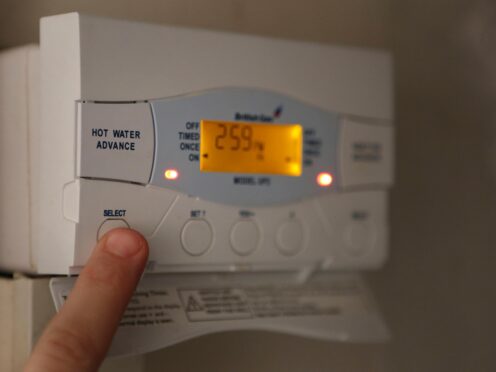Some £33 billion will be required to decarbonise heating in Scotland, a new strategy has claimed, with homeowners expected to pick up some of the bill.
The Scottish Government strategy, published on Thursday, lays out the total cost of the initiative – which seeks to convert the country’s building stock to zero emissions by 2045.
Up to one fifth of all greenhouse gases in Scotland come from homes and buildings and the strategy states one million homes and more than 50,000 non-domestic buildings will need to transition by 2030 – which will reduce emissions by an estimated two-thirds.
But Government funding will not be enough to cover the costs, with investment needing to peak at between £2 billion and £2.5 billion by the end of this decade.
Getting ready to deliver my first Ministerial Statement. Zero carbon heating and energy efficiency will both be critical for tackling fuel poverty and the climate emergency, and the cooperation agreement with the @scottishgreens will lead the way with at least £1.8bn investment. pic.twitter.com/Om31klGNlG
— Patrick Harvie 🇪🇺🌈 (@patrickharvie) October 7, 2021
At least £1.8 billion of Government funding will be made available to decarbonise buildings in this parliamentary term, according to the Programme for Government announced last year.
The strategy says a taskforce is being created to investigate how the additional money can be found.
“Clearly, this cost cannot be borne by the public sector alone,” the strategy said.
“We are establishing a new green heat finance taskforce to identify innovative solutions to maximise private sector investment, and find new ways to help individuals and organisations spread the upfront cost of investing in making their properties warmer, greener and more efficient.
“Public sector funding from the Scottish Government, UK Government, local authorities or investment from new institutions like the Scottish National Investment Bank will be a part of the solution to deliver the scale of transformation needed by 2045, but private investment – whether from homeowners, landlords or business paying for their own properties or from financial institutions providing financing for large scale infrastructure – must also drive progress.
“We must mobilise and work in collaboration with the private sector to leverage the scale of investment needed and to develop innovative and new approaches to financing heat decarbonisation and energy efficiency measures.”
Zero carbon buildings minister Patrick Harvie announced the strategy in his first statement to Parliament since the co-operation agreement between the Greens and SNP.
However he was unable to say how much homeowners will be likely to pay for the necessary changes, or how they will be supported by Government.
In response to a question from Labour MSP Mark Griffin, Mr Harvie said: “Can I tell every homeowner what the precise share of investment is going to be between now and 2045 for every private home?
“No, of course I can’t do that.
“What we are doing is committing to ensure that we’re looking at a wide range of sources for that investment.
“It can’t all come from public funds.
“Even I might blanche at the idea if (Mr Griffin) comes forward with a proposal for a £33 billion tax rise so we can fund it all from public sources.”
The strategy claims at least 16,400 jobs will be created through the need for different heating sources by 2030.
